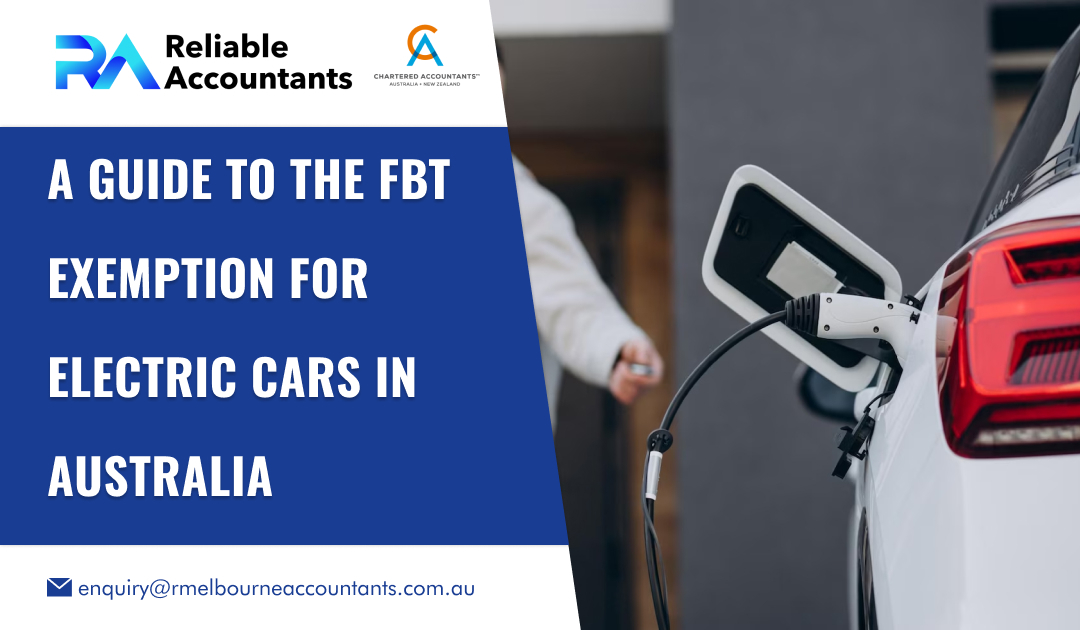To support both the budget of Australians and the environment, the federal government has introduced a law that makes electric cars exempt from the fringe benefits tax (FBT). Continue reading this blog to know more about FBT exemption on EVs.
Eligibility Criteria for Electric Cars Exemption
A vehicle benefit will specifically be a tax-free benefit for a year if:
- The value of the car at the first retail sale was less than the luxury car tax threshold for fuel-efficient vehicles, which is currently $84,916.
- And, the car is first held and used on or after 1 July 2022.
- The scheme has been extended to include plug-in electric and internal combustion hybrids until 1 April 2025.
How do we calculate the GST credits and deductions for an electric car that is not subject to the FBT and is only used for personal use?
There is an assumption that the car is bought by the company and is given to someone in their position as an employee. Additionally, it is also assumed that the company pays the car’s operating costs. The use of the vehicle from the employer’s perspective (i.e., not the employee’s) should be the main consideration for claiming GST credits and depreciation deductions on a car purchased by the employer.
When a car is given to an employee who works for the employer as part of their employment, this should be regarded as the employer’s business usage (i.e., 100% taxable use). This is because such use should be considered to be taxable use from the employer’s viewpoint (including with regard to GST and depreciation deductions).
When it comes to the costs associated with the employer’s car maintenance, the same guidelines should be followed (i.e., the focus should be on whether the costs were spent on behalf of someone in their role as an employee).
When it comes to deducting depreciation for income tax purposes, for instance, the same rules should be followed. This shouldn’t be substantially impacted by whether the vehicle is exempt from FBT (i.e., the connection between FBT exemptions and denial of deductibility/GST credits should be more significant for entertainment-type expenses).
To be clear, you should know that the luxury car depreciation limit/the GST limit, if it applies to the employer’s income tax deductions and credits related to the purchase of the vehicle.
Does a Tesla come under the depreciation cost base limit?
The Treasury Laws Amendment (Electric Car Discount) Bill 2022, which gained Royal Assent on December 12, 2022, contains the changes regarding the concessional FBT treatment for electric cars. This measure has impacted the FBT treatment. It doesn’t impact the car limit for GST or depreciation purposes.
Car Limit
When the electrical vehicle is categorised as a car, the car limit for both GST purposes and tax depreciation purposes applies. For depreciation deductions, the car limit is $64,741 for the 2023 income year. The GST credits are also restricted to 1/11th of the car limit. Based on when the employer bought a car to give to the employee for being part of their gross compensation package, the temporary full expensing provisions may apply for an instant deduction up to the car limit.
Conclusion
If you meet eligibility criteria for electric vehicle exemption, then you are allowed to get that car/vehicle on a novated lease tax-free. You can contact Reliable Melbourne Accountants if you want more information on FBT exemption for EVs.

